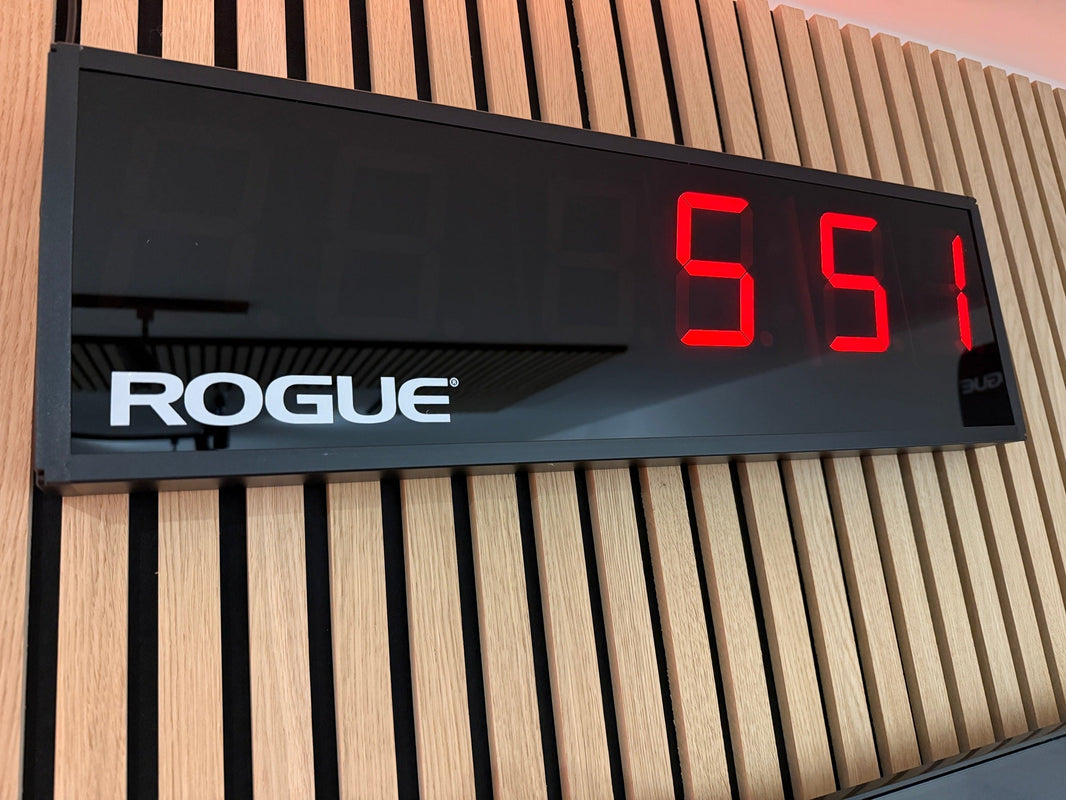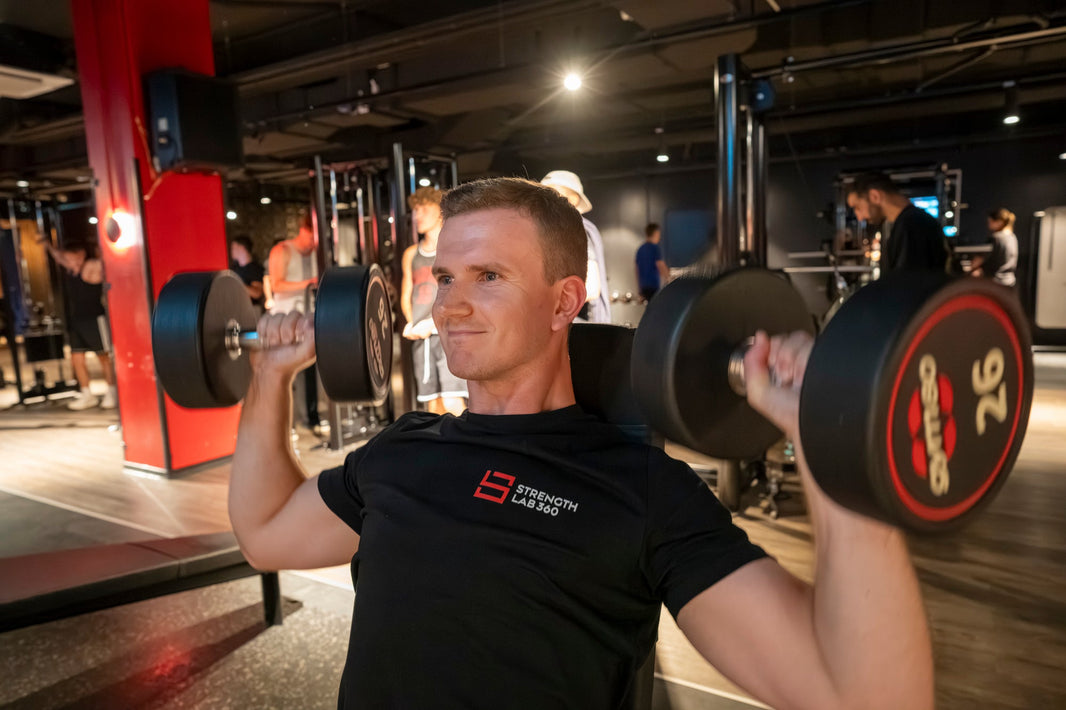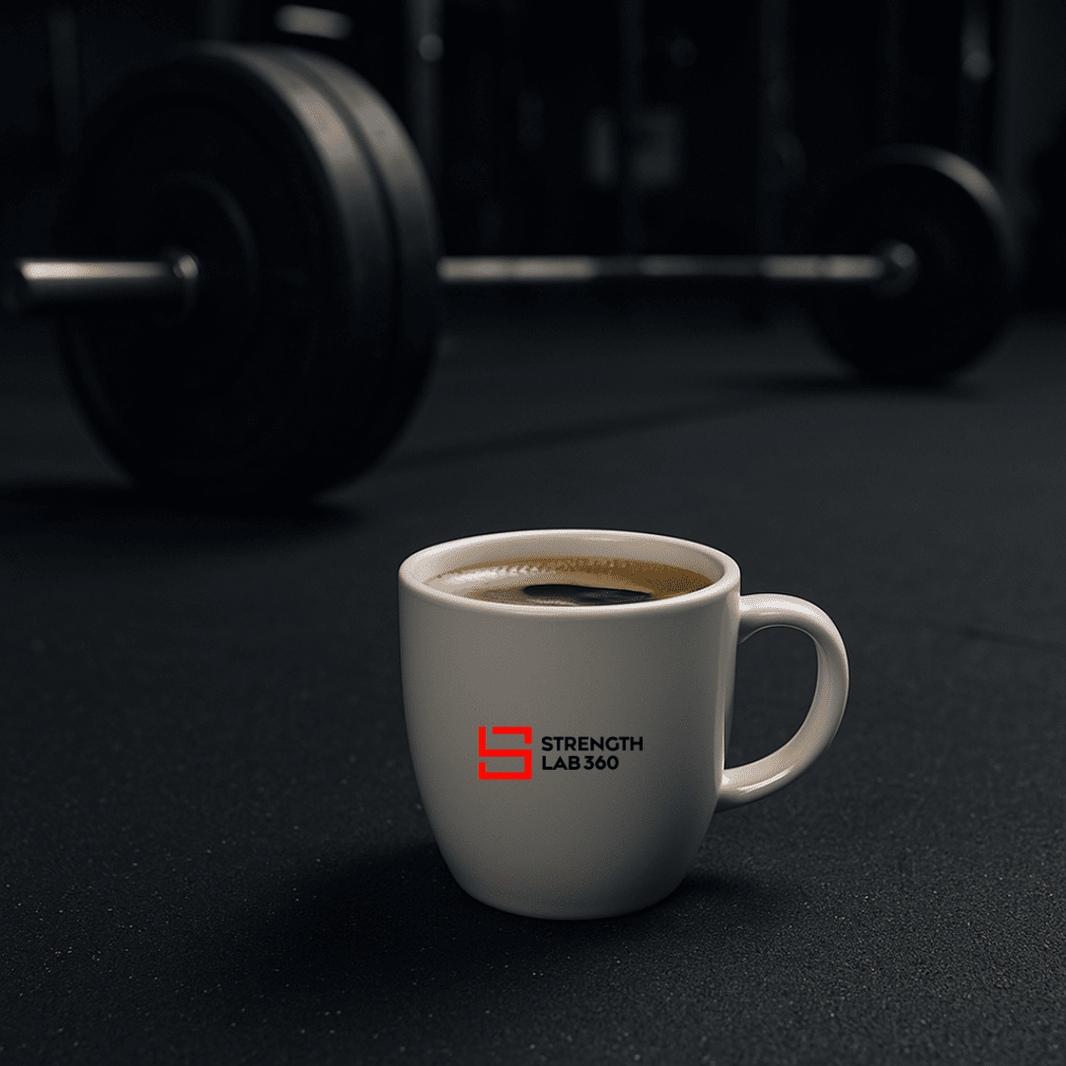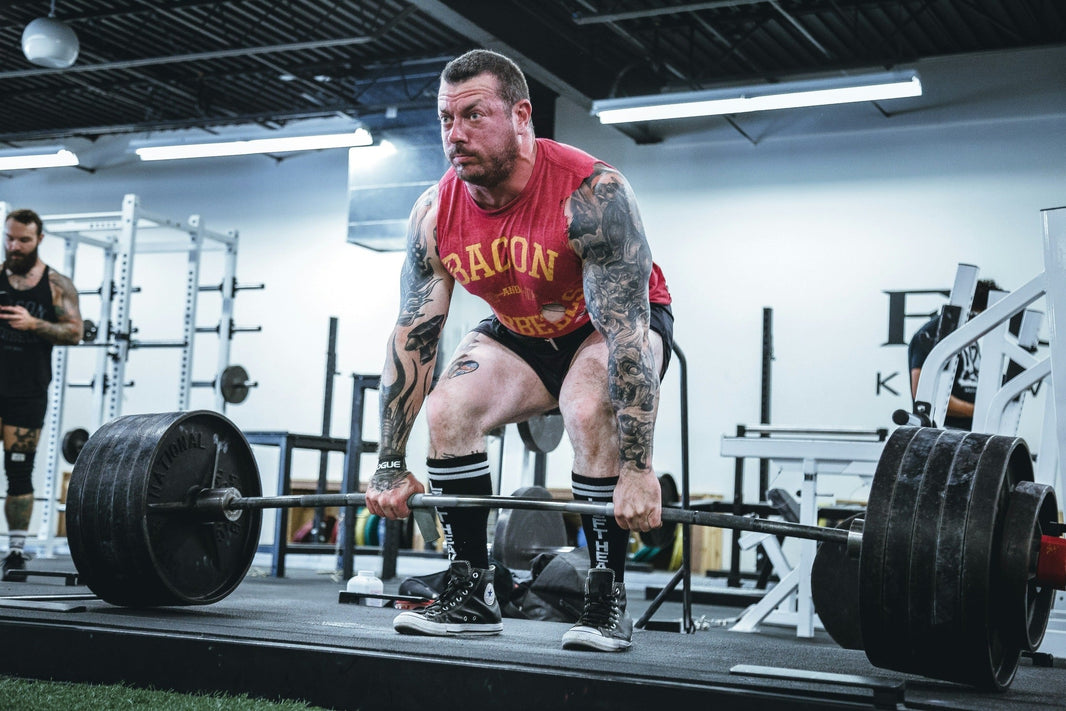As we just started 2025, many of us are contemplating our New Year’s fitness resolutions. If you aim to dominate your strength training goals this year, it’s essential to develop a strategy that emphasizes realistic and sustainable habits. With the right tools and mindset, you can set yourself up for success and achieve your fitness aspirations.
Key Takeaways
To successfully dominate your strength training goals in 2025, focus on setting realistic and specific goals, building sustainable habits, and prioritizing recovery. Incorporate progressive overload into your training regimen, track your progress meticulously, and maintain a long-term mindset. Utilize tools like StrengthLab360 for a scientific training partner in your pocket that takes out the guesswork of your training. Remember, consistency and discipline are key to overcoming challenges and achieving your desired results.
1. The Science of Setting Realistic Goals
Setting realistic goals is fundamental to achieving sustainable progress in your strength training journey. By defining clear and attainable objectives, you can enhance your physical fitness and maintain motivation throughout the year. Understanding the science behind goal setting helps you balance weight loss and muscle gain effectively, which is crucial for improving your overall health and ensuring that your training regimen supports long-term endurance. Moderate weight loss improves metabolic health.
Discover StrengthLab360
The StrengthLab360 App is your ultimate partner in reaching your strength training goals. With science-based training plans, real-time adjustments, and comprehensive analytics, the app empowers you to optimize every workout for maximum results. Whether you're focused on weight loss, building strength, or gaining musce size (hypertrophy), StrengthLab360 provides the tools and support you need to succeed in your New Year’s fitness resolution.

2. Building Sustainable Habits
Establishing sustainable habits forms the backbone of your strength training journey. Incorporate essential exercises such as squats and bench presses into your training routine, supported by guidance. By consistently following barbell routines and maintaining a disciplined workout schedule, you ensure continuous progress and long-term fitness gains that align with your New Year’s fitness goals. The Habit Loop Overview.
Key Habits for Strength Training Success:
Building sustainable habits is vital for long-term success in strength training. Start by creating an actionable plan that outlines your workouts, meal plans, and rest days. Consistency is key; commit to showing up even on tough days. Track your workouts, diet, and recovery to identify areas for improvement. Embrace discomfort during workouts, as real progress often comes from pushing your limits.
3. The Role of Progressive Overload
Progressive overload is the cornerstone of advancing your strength training goals. By gradually increasing the demands on your muscles, you trigger growth and improve performance. StrengthLab360 simplifies this process by managing progressive overload in real time, allowing you to focus on your training without the hassle of calculations. With its tailored guidance, the app ensures you implement progressive overload effectively, maximizing your results and setting you up for success in your 2025 New Year’s fitness resolution.
Practical Application:
Progressive overload is a fundamental principle in strength training that involves gradually increasing the amount of weight or resistance used in workouts. This approach stimulates muscle growth and strength gains, which are critical to dominating your fitness objectives for the year. By applying these strategies, you can ensure that your training remains effective and aligned with your long-term goals.
4. Prioritize Sleep and Recovery

Prioritizing sleep and recovery is fundamental to dominating your 2025 strength training goals. Adequate rest, specifically 7-9 hours of quality sleep each night, is essential for muscle recovery and overall health. Implementing active recovery techniques, such as stretching and foam rolling, keeps your muscles in optimal condition. Viewing recovery as an integral part of your training plan ensures your body rebuilds stronger after intense workouts, ultimately preventing burnout. Role of sleep in physical performance.
Stress Management Tips:
Effectively managing stress is crucial for maintaining focus on your fitness goals. Techniques like mindfulness meditation, deep breathing, and consistent physical activity can significantly reduce stress levels. Additionally, a balanced diet and proper hydration contribute to overall well-being. By integrating these stress management strategies into your routine, you can enhance your mental resilience, essential for overcoming challenges in your strength training journey and achieving your new year's fitness resolutions.
5. Focus on Maintenance After Initial Success
Once you achieve initial success in your strength training journey, focusing on maintenance is essential to prevent regression. This involves continually challenging your body while allowing for recovery. Setting new goals keeps motivation high and avoids complacency. Regularly assessing your progress and adjusting your training program ensures you remain engaged and committed to your long-term fitness aspirations, particularly as you kick off your 2025 new year’s fitness goals. Maintenance phases in weight management.
Discover StrengthLab360
StrengthLab360 is crafted to revolutionize your strength training experience. With dynamic training plans adapting in real-time based on your feedback, each workout is optimized for your individual strength goals. Cross-platform accessibility and advanced analytics allow you to track your progress easily and make informed adjustments to your regimen. Whether you are a beginner or an experienced athlete, StrengthLab360 is your best strategy to dominate your 2025 fitness resolutions.
6. Adopt a Long-Term Mindset
Adopting a long-term mindset is essential for sustained progress in strength training. By referencing your performance metrics, enhancing your range of motion, prioritizing sleep, and managing stress effectively, you can ensure continuous improvement. This perspective fosters resilience and adaptability, crucial for overcoming obstacles and achieving your new year's fitness goals. Embracing the journey of fitness as a lifelong commitment will set you on a path to mastery and success. The Power of Habit Overview.
Example:
For instance, focusing on knee stability during workouts by controlling the speed of each rep can significantly reduce injury risk. Following guidelines from trusted sources ensures that every movement supports your long-term training goals.
7. Tools and Resources for Support
Utilizing tools and resources significantly enhances your strength training experience. StrengthLab360 offers personalized training plans, real-time performance analytics, and coach-athlete integration features. Fitness trackers and apps help monitor your workouts, nutrition, and recovery, providing valuable insights into your progress. Engaging with a supportive community, whether online or in-person, offers motivation and accountability as you work towards dominating your 2025 strength training goals. Fitness apps and adherence.
Discover StrengthLab360
StrengthLab360 is designed to revolutionize your strength training experience. The app provides dynamic training plans that adapt in real-time based on your feedback, ensuring that each workout is optimized for your specific goals. With cross-platform accessibility and advanced analytics, users can easily track their progress and make informed adjustments to their training regimen. Whether you are a beginner or an experienced athlete, StrengthLab360 can help you unlock your true potential and maximize your 2025 fitness goals.
Conclusion
In conclusion, dominating your strength training goals in 2025 requires a strategic approach that encompasses realistic goal-setting, sustainable habits, and effective recovery practices. By leveraging the principles of progressive overload and utilizing resources like StrengthLab360, you can optimize your training experience and achieve lasting results. Stay committed, embrace challenges, and remember that every step you take brings you closer to your ultimate fitness aspirations.
Frequently Asked Questions
How Do I Set Realistic Strength Training Goals? To set realistic strength training goals, start by identifying specific objectives that are measurable and time-bound. For example, instead of saying "I want to get stronger," specify "I want to increase my deadlift by 50 pounds by June 1st." Break your goals into smaller, quarterly targets to create a sense of urgency and track your progress effectively. Ensure that your goals are challenging yet attainable, allowing for gradual improvements over time. Utilizing the StrengthLab360 app can further assist you in tracking these goals and making necessary adjustments to your training strategy.
What Habits Support Sustainable Strength Training Progress? Sustainable strength training progress is supported by habits such as consistency in workouts, tracking your progress, and maintaining a balanced diet. Create a structured plan that outlines your workouts and meal prep to stay organized. Embrace discomfort during training sessions and surround yourself with a supportive community to enhance accountability. Additionally, prioritize recovery and stress management to maintain overall well-being and prevent burnout. Integrating these habits into your routine will help you dominate your fitness resolutions in the new year.
Why is Progressive Overload Important in Training? Progressive overload is essential in training because it stimulates muscle growth and strength gains by gradually increasing the demands placed on your body. This principle ensures that your muscles continue to adapt and improve over time. By implementing progressive overload through increased weights, repetitions, or intensity, you can avoid plateaus and keep challenging your body, ultimately leading to better results in your strength training journey. Utilizing StrengthLab360’s analytics can help you track these adjustments effectively.
How Does Sleep Affect Strength Training Recovery? Sleep plays a critical role in strength training recovery by allowing the body to repair and rebuild muscle tissue. Quality sleep helps regulate hormones that are vital for muscle growth and recovery, such as testosterone and growth hormone. Aim for 7-9 hours of sleep each night to optimize recovery and performance. Prioritizing sleep can enhance your overall training results and help prevent fatigue and burnout, ensuring you stay on track with your 2025 new year’s fitness goals.
How Can I Maintain Progress After Initial Success? To maintain progress after initial success, focus on setting new, challenging goals to keep your motivation high. Regularly assess your training routine and make adjustments as needed to prevent stagnation. Incorporate variety into your workouts to keep things fresh and engaging. Additionally, continue to prioritize recovery and stay connected to your support network to reinforce your commitment to long-term success. The StrengthLab360 app can aid in tracking performance and providing real-time adjustments to your regimen, ensuring you maintain and build upon your initial success.







